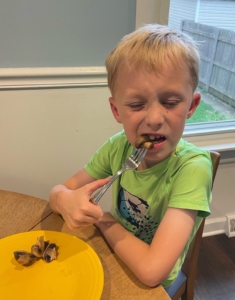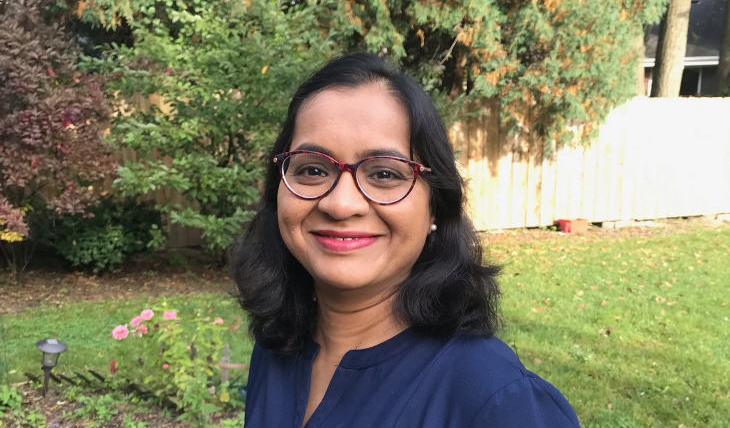Luke’s Food Journey
 As his mother, I thought Luke was the most adorable baby. He learned to crawl at six months (after first crawling backward for two weeks) and he learned to walk at ten months. Despite all his mobility, I never had to worry about him. He rarely put toys in his mouth. I joked that I could leave the room full of pennies and tacks and he would still be okay. He was happy and social, and he loved listening to us read him book after book. But it quickly became clear that he didn’t love anything about eating solids. Luke’s sister is 18 months older than him, and she ate (and still eats) a large variety of food. Both kids were breastfed for their first year and started to slowly take solids at six months, but I could tell that Luke’s food journey was going to be in unchartered territory.
As his mother, I thought Luke was the most adorable baby. He learned to crawl at six months (after first crawling backward for two weeks) and he learned to walk at ten months. Despite all his mobility, I never had to worry about him. He rarely put toys in his mouth. I joked that I could leave the room full of pennies and tacks and he would still be okay. He was happy and social, and he loved listening to us read him book after book. But it quickly became clear that he didn’t love anything about eating solids. Luke’s sister is 18 months older than him, and she ate (and still eats) a large variety of food. Both kids were breastfed for their first year and started to slowly take solids at six months, but I could tell that Luke’s food journey was going to be in unchartered territory.
At his first-year checkup, his pediatrician was concerned because he hadn’t gained weight since his previous visit. She referred him to a feeding clinic where he was evaluated by a gastrointestinal (GI) doctor and a feeding team. I had him evaluated through the Early Intervention Program as well. All the reports came back okay, and no services were recommended. I remember feeling overwhelmed and worried, but assumed Luke’s lack of weight gain was due to his increased mobility. After all, walking takes a lot of energy! I don’t recall exactly when he first made it onto the growth chart for weight, but it was in his preschool years. He barely made it on, but it still felt like an accomplishment.
Between making some short-term progress and Covid, I’d say we muddled along. But little by little, the number of foods that he would tolerate was dwindling. The only fruit we could depend on was fuji apples with the skin cut off (and he’d eat them with a fork). By the time he was in first grade, I dreaded packing his lunch for school. Dinner was extremely unpleasant. We were all stressed. Luke didn’t like the smell of a lot of different foods; on occasion, just the smell would make him throw up. If we made him try something new, he would gag on the first bite, and I would let him stop. He usually ate some of the food we had for dinner, and then he would ask for a bowl of oatmeal or cereal. When I asked Luke how he felt about dinner during that time, he recalled, “I felt annoyed because I didn’t like any of the food, but all of my family did. And [that made me] mad.”

I didn’t want to force him to eat, but I didn’t know how to help him. It was hard. I decided to take him for another feeding evaluation with a different provider. I was still skeptical when we started weekly sessions at Assential Therapies. Home food practices were exhausting; I would spend over 30 minutes with him just to get few raisins or two slices of a yellow pepper down. But it became clear that he was making progress. When I asked him about “food school” he would say, “I was kinda happy to go because I learned to like cucumbers so I could be a little more like my family.” Even though he never ate as well or as much at home as he did in therapy, we had a new level of optimism.
It only took us four months at Assential Therapies to reach our goals. We now have strategies to apply and Luke has more confidence to try new foods. He even started eating school lunches! Prior to Assential Therapies, if he wanted to try a school lunch, we had to send him with a backup lunch. It still isn’t easy, but it’s easier. Today, we remind him that he doesn’t have to love everything he eats, and that helps. He went from eating only apples and no vegetables to actually enjoying a variety of healthy foods like cucumbers and carrots, chicken and mushrooms. Yes, mushrooms. Recently, he didn’t want me to tell his dad about the entire bowl of mushrooms that he ate because he didn’t want to make a big deal out of it. Mushrooms?! Really?! That’d be a big deal for anyone!

